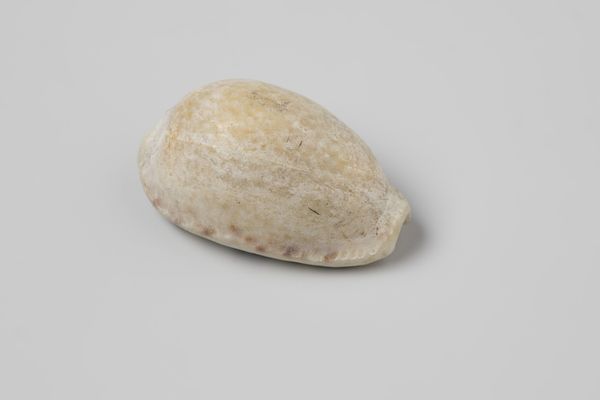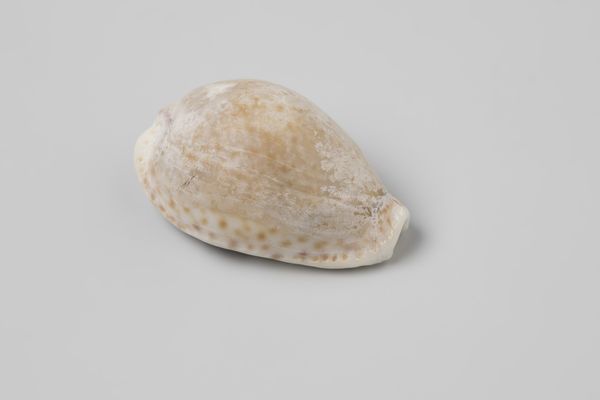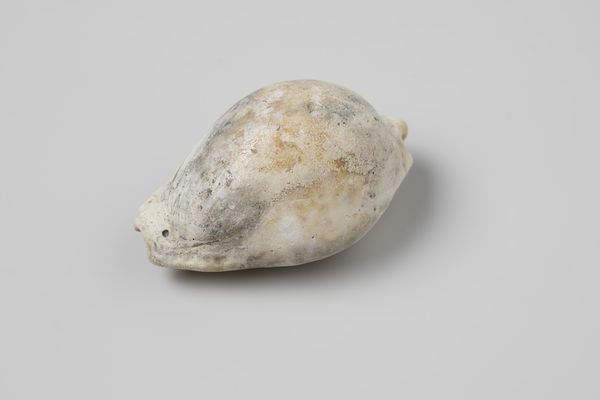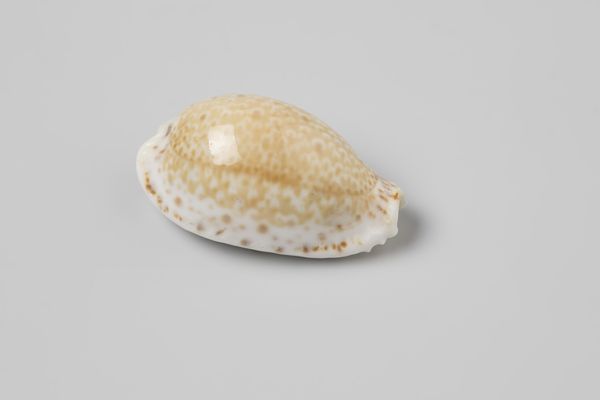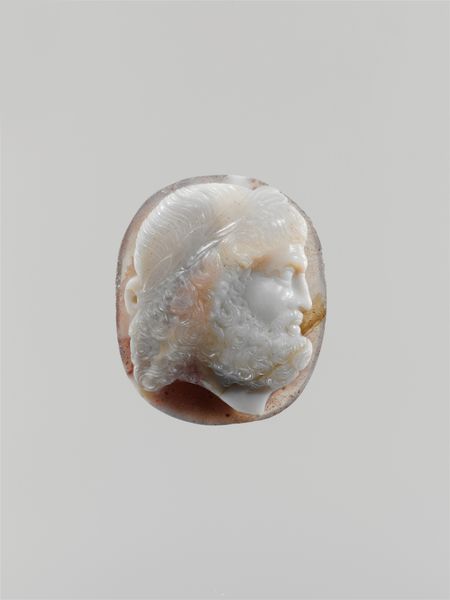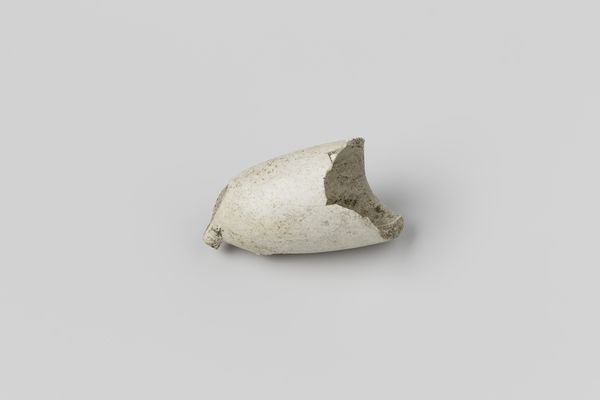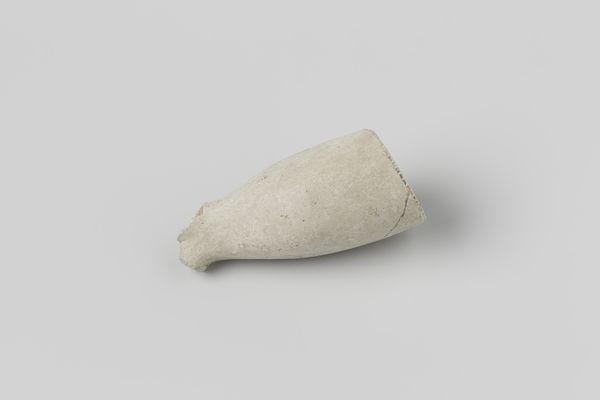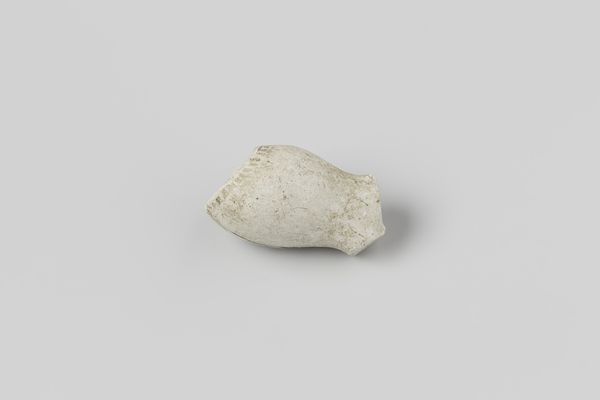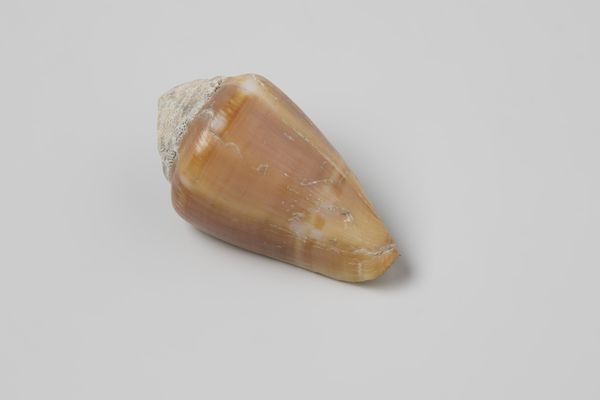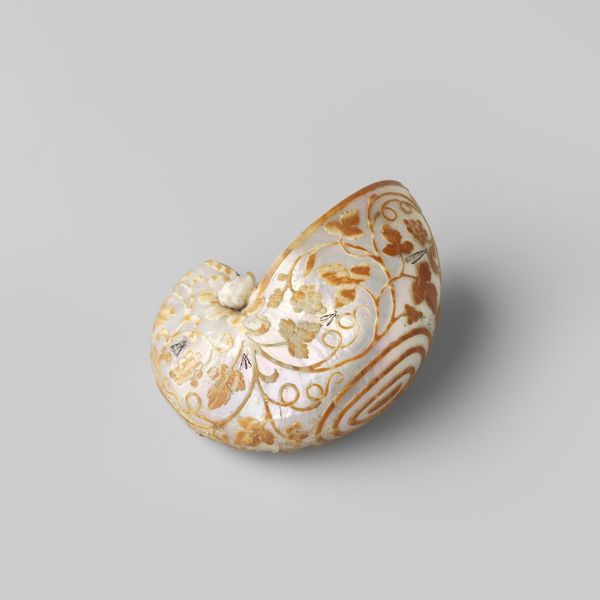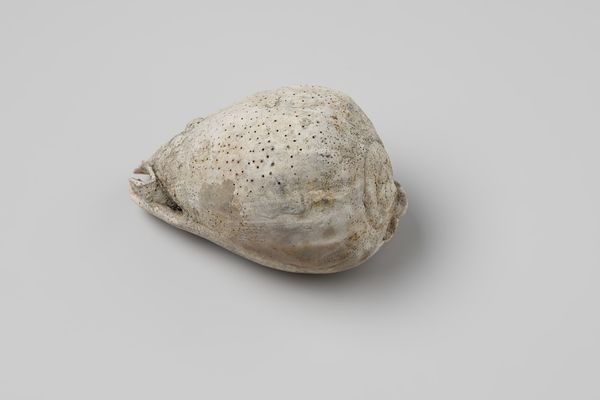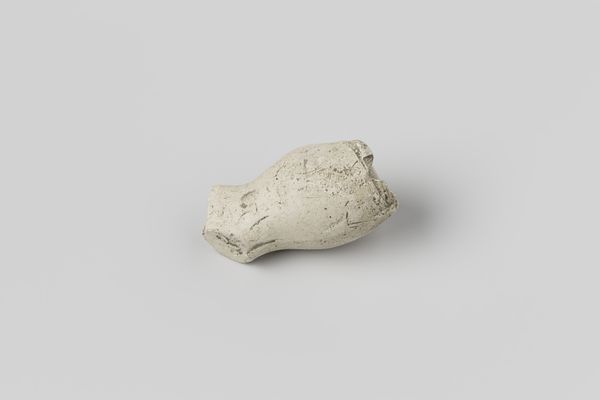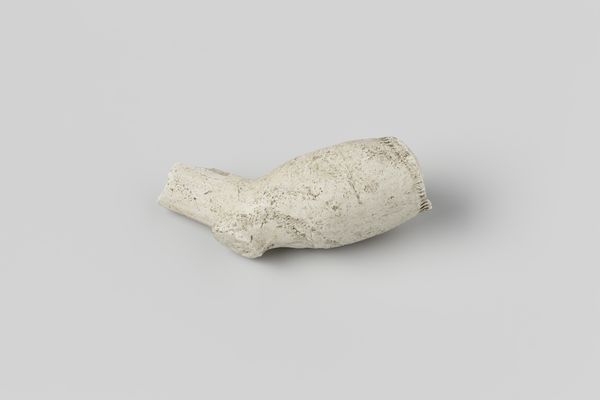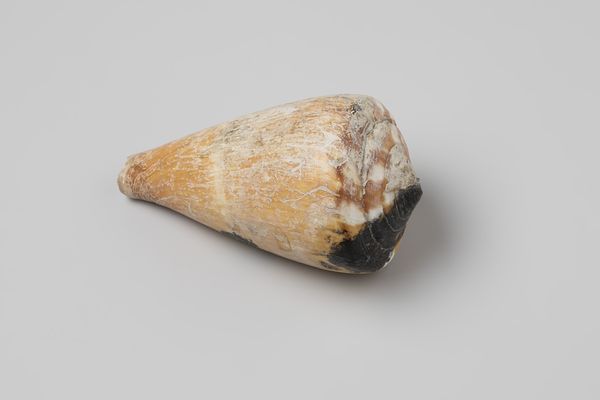
Nautilus pompilius shell from the wreck of the Dutch East India ship Witte Leeuw before 1613
0:00
0:00
nietvantoepassing
Rijksmuseum
photography
#
still-life-photography
#
landscape
#
photography
#
realism
Dimensions: length 6.5 cm, width 6.5 cm, height 3.8 cm
Copyright: Rijks Museum: Open Domain
This Nautilus pompilius shell was recovered from the wreck of the Dutch East India ship Witte Leeuw. It's a poignant artifact of 17th-century maritime trade. The shell's spiraling form and natural striations speak to the slow, incremental processes of organic growth, so different from the rapid expansion of global commerce during the Dutch Golden Age. The nautilus would have been harvested in the East Indies and brought back to Europe as a curio. Objects like this were often transformed into elaborate, luxury objects, mounted in silver or gold. In this case, we see the shell in its found state, worn and patinated by its long immersion in the sea. It serves as a reminder of the human cost of exploration and colonization and invites us to consider the complex relationship between natural resources, artistic creation, and economic exploitation.
Comments
No comments
Be the first to comment and join the conversation on the ultimate creative platform.
